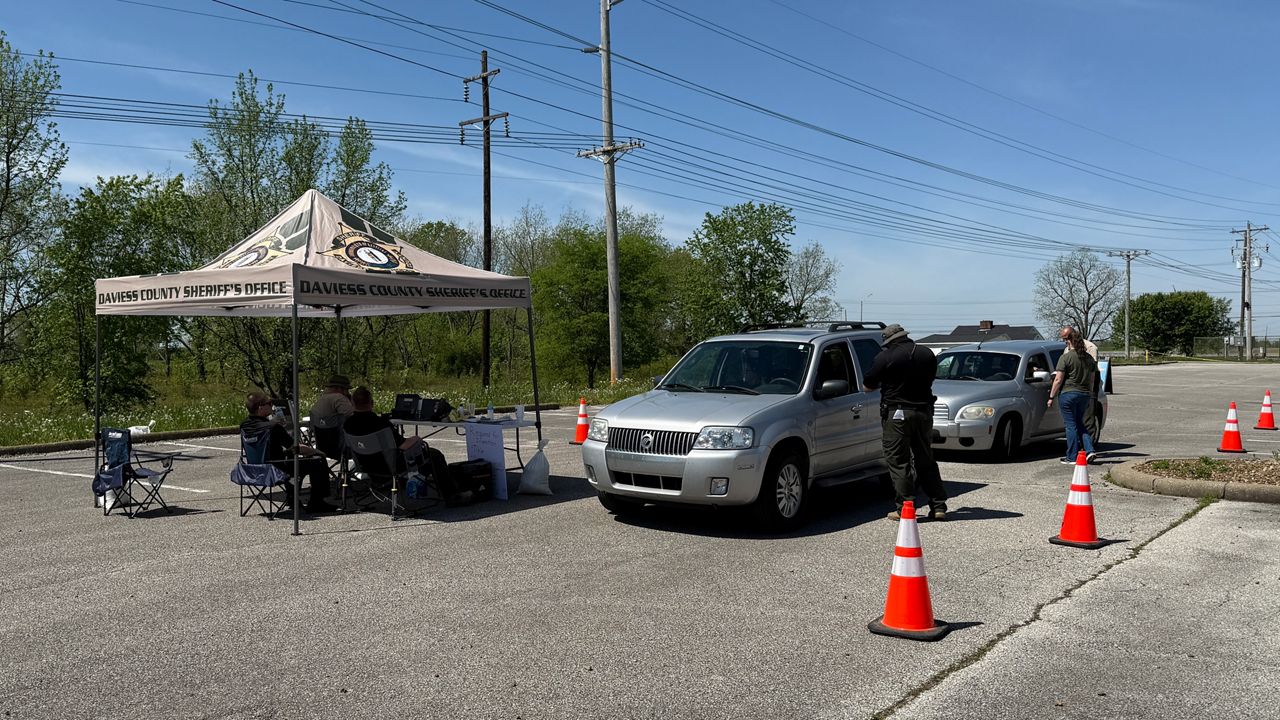LOUISVILLE, Ky. — A powerful sedative for large animals is being detected in a growing number of human overdose deaths.
The drug is spreading across the country. It's called Xylazine. On the street, it’s known as "Tranq," "K," "Sleep Cut," or even "Zombie Drug." The DEA said it’s only authorized for use in the U.S. by veterinarians.
Grace Harris, who is from Louisville, has heard of Xylazine. She’s a mother as well as a horse riding instructor and trainer. She started riding horses as a child and has been around them her whole life. It’s partly why she knows about the substance.
“It is extremely dangerous to be messing with stuff like that.” Harris explained. “I couldn’t imagine. It’s just very, very scary.”
Harris is in recovery herself. She struggled with addiction for over a decade. It started in 2006 when she broke her leg and got hooked on Percocet. Eventually, she started Fentanyl.
“I only stayed on Fentanyl for three months. I realized how dangerous it was. Where my life was going.” Harris explained. “I wasn’t a happy addict. A lot of people enjoyed their addiction. I hated it. I really, really, really wanted to get help. I wanted to get off of it. I knew it wasn’t getting any better.”
In October, the DEA released a report that warns about the growing threat of Xylazine and its mixture with other drugs.
Dr. Corey Waller is the chief medical officer BrightView Health. “It actually blocks the release of adrenaline in the brain, is a simple way to think about it.” Waller explained. “When you block the release of adrenaline, you actually make you go to sleep. You lower your blood pressure. You decrease your respiratory rate.”
The DEA report states Xylazine first appeared sporadically in the Northeast in 2006. The report says xylazine use has spread from there to the South, Midwest and West.
“People don’t typically become addicted to Xylazine by itself. It’s something that’s been added to the drug supply along with fentanyl and heroin along with these other things and created a real issue because it’s not something that we can fix easily,” Waller explained.
Even the FDA alerted healthcare professionals of the risks to patients exposed to xylazine in November. The DEA report states users who inject Xylazine or drug mixtures with it often develop soft tissue injuries that can lead to the death of that tissue. The report states Xylazine is not an opioid, which means Naloxone, also known as Narcan, does not reverse its effects.
“With this drug added into the system, it’s unpredictable what its side effects will be based on its dose. It’s not reversable in a way that’s safe. So, we’re stuck in a sense, with just trying to support this person sometimes with a tube to breathe for them. Sometimes with other machines to help stabilize them,” Waller said.
In the DEA report, there were 116 xylazine-positive overdose deaths in the South in 2020. By 2021, that number jumped to 1,423.
That’s a more than 1,000% increase. Waller says at least one patient that he knows of died this year in an overdose involving xylazine.
“I’m angry at this point. I’m very frustrated and angry with this, in the fact that we just seem to be the guinea pigs of the drug trade. They just throw whatever they can find into the drugs and could care less about it then these communities are devastated by it,” he said.
Harris said she knows of at least two people who have died from overdosing on a concoction including Tranq.
“It’s not very popular. Yet. But it will be, like everything else.” Harris said.
Both Harris and Waller say there is hope and there is help for anyone struggling with addiction.
“It is not a lost cause. It’s simply the ability to wake up and walk in and say you need help,” Waller explained. “The best thing we can do is build a system early that gets people into care as fast as possible, so that we can keep them from being exposed to this. That helps our kids really understand that honestly, any drug has the potential to kill you. One pill can kill.”
Harris has a warning to anyone thinking about trying it.
“Don’t do it. There’s ways to get away from it. Stay away from it.” Harris said emphatically. “Don’t do it. You’re gonna die. It’s gonna kill you. It may not kill you today, it may not kill you tomorrow, but it will kill you.”
That advice could save someone’s life.
That DEA report said Xylazine’s emergence in the U.S. looks like its following the same path as fentanyl. Starting in the Northeast and spreading South and West. The pattern, the report states, indicated use of xylazine will likely increase and be commonly encountered in the illicit fentanyl supply. If you or someone you know needs help with addiction, call the 24/7 National Helpline at 1-800-662-HELP (4357).










